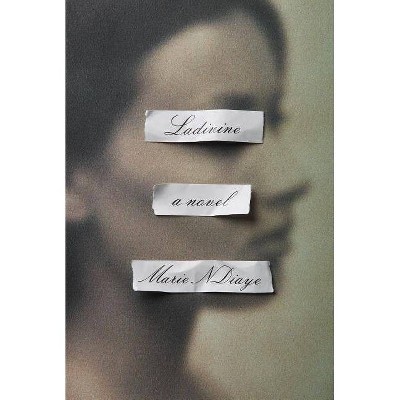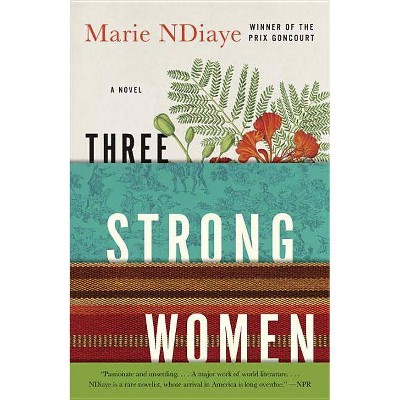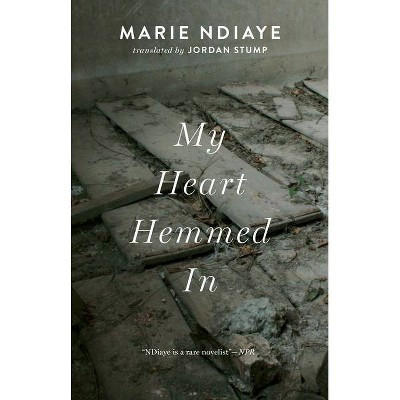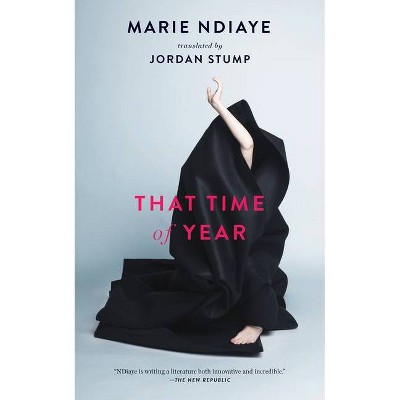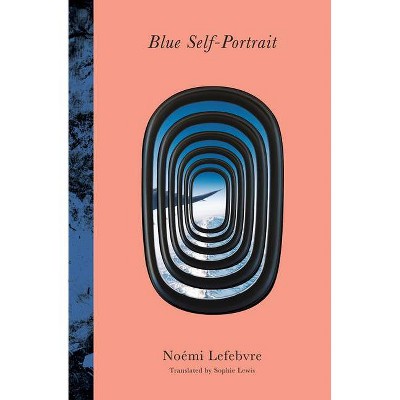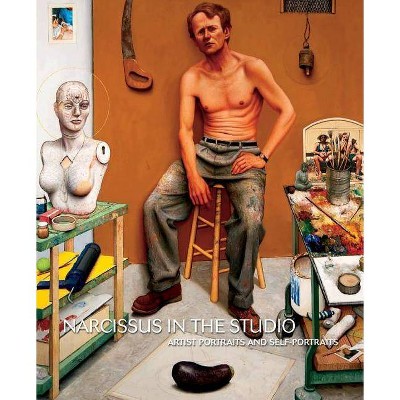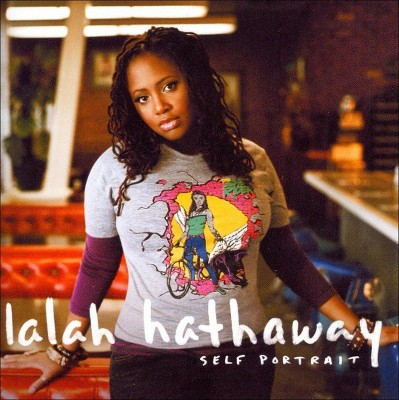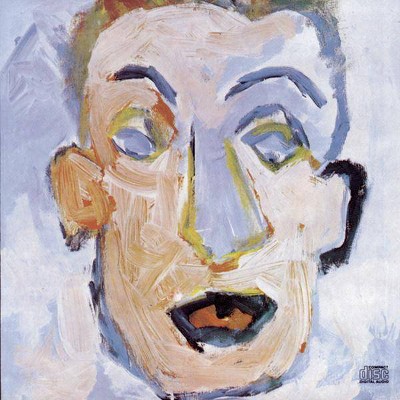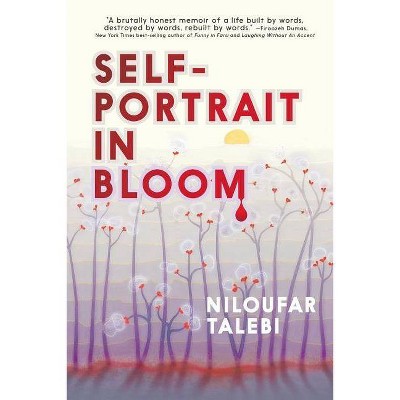Self-Portrait in Green - by Marie Ndiaye (Paperback)
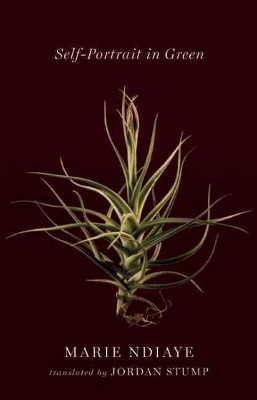
Similar Products
Products of same category from the store
AllProduct info
<p/><br></br><p><b> About the Book </b></p></br></br>"An excerpt from Self-Portrait in Green was first published in A Public Space"--Copyright page.<p/><br></br><p><b> Book Synopsis </b></p></br></br>It seems there is no genre of writing Marie NDiaye will not make her own. Asked to write a memoir, she turned in this paranoid fantasia of rising floodwaters, walking corpses, eerie depictions of her very own parents, and the incessant reappearance of women in green. Just who are these green women? They are powerful (one was NDiaye's disciplinarian grade-school teacher). They are mysterious (one haunts a house like a ghost and may be visible only to the author). They are seductive (one stole a friend's husband). And they are unbearably personal (one is NDiaye's own mother). They are all, in their way, aspects of their creator, at once frightening, menacing, and revealing of everything submerged within the consciousness of this singular literary talent. A courageous, strikingly honest, and unabashedly innovative self-portrait, NDiaye's kaleidoscopic look at the women in green is a revelation to us all -- about how we form our identities, how we discover those things we repress, and how our obsessions become us.<p/><br></br><p><b> Review Quotes </b></p></br></br><br><b>Praise for <i>Self-Portrait in Green</i>: </b> <p/>Marie NDiaye's <i>Self Portrait in Green</i> is phenomenal. <b>-- Idra Novey, author of <i>Ways of Disappearing</i></b> <p/>NDiaye's two early books, <i>All My Friends</i> and <i>Self-Portrait in Green</i> . . . are so extraordinarily vivid and controlled<b> -- <i>The New Republic</i></b> <p/>[C]ompelling and tightly written. . . . Rather like a Francis Bacon triptych, there is nothing fixed, comforting or coherent about the narrator's identity or idea of herself, but the image she projects is incredibly vivid. . . . [NDiaye's] prose reads effortlessly in Jordan Stump's fine translation. -- <b><i>Times Literary Supplement</i></b> <p/>Eerie and mysterious. . . . A kind of French African Elena Ferrante. -- <b>Terese Svoboda, Guggenheim fellow in fiction</b> <p/>"<i>Self-Portrait in Green</i> is a sort of malicious reverie where the real mingles with the imagined, the living with the dead, the water with the land." -- <b><i>The Express</i> (Paris)</b> <p/>"It's a book that, once read, leaves you wondering what to think about it . . . knowing . . . you had a thought-provoking evening." <b><i>-- Minneapolis Star Tribune</i></b> <p/>"[W]ades through feminine fear, power, and insecurity like no other book I've encountered." <b><i>-- Flavorwire</i></b> <p/>[A]n exploration of the sources of fiction and the way that fiction and memoir mix . . . a representation of the artist's mind, questions, anxieties, pleasures, and all. -- <b><i>Necessary Fiction</i></b> <p/>Marie NDiaye has created a tiny, psychological masterpiece with her Self-Portrait in Green. <b><i>-- Three Percent</i></b> <p/>Self-Portrait in Green is a book that defies easy categorization. . . . In NDiaye's world, ghosts are not as rare as we might think, nor are they like other ghosts, or as you or I probably imagine [them]. <b><i>-- 3: AM Magazine</i></b> <p/>Unsentimental in tone and kaleidoscopic in form, Self-Portrait in Green teems with the uncanny texture of a recurring dream. Marie NDiaye's hauntingly spare novel works the terrain between Toussaint's microfiction and Leve's autofiction to gesture toward a new French narrative--smaller and stranger and toothier than before. <b>-- Hal Hlavinka, Community Bookstore in Brooklyn</b> <p/><b>Praise for the author: </b> <p/>"NDiaye, who received France's most prestigious literary prize . . . may be that nation's most startling new literary voice." -- <i>Publishers Weekly</i>, starred review <p/>"[NDiaye] is increasingly--and justly--recognized as a major world writer." -- <i>Rain Taxi Review of Books</i><br><br><p/><br></br><p><b> About the Author </b></p></br></br><b>Marie NDiaye</b> met her father for the first time at age 15, two years before publishing her first novel. She is the recipient of the Prix Femina and the Prix Goncourt, the latter being highest honor a French writer can receive. One of ten finalists for the 2013 International Booker Prize, alongside Lydia Davis and Marilynne Robinson, she is the author of over a dozen plays and works of prose. <b>Jordan Stump</b> is a two-time nominee for the IMPAC Dublin Literary Award. One of the leading translators of innovative French literature, he has translated books by Nobel laureate Claude Simon, plus Jean-Philippe Toussaint, Eric Chevillard, and Jules Verne's French-language novel <i>The Mysterious Island</i>.
Price History
Price Archive shows prices from various stores, lets you see history and find the cheapest. There is no actual sale on the website. For all support, inquiry and suggestion messages communication@pricearchive.us
